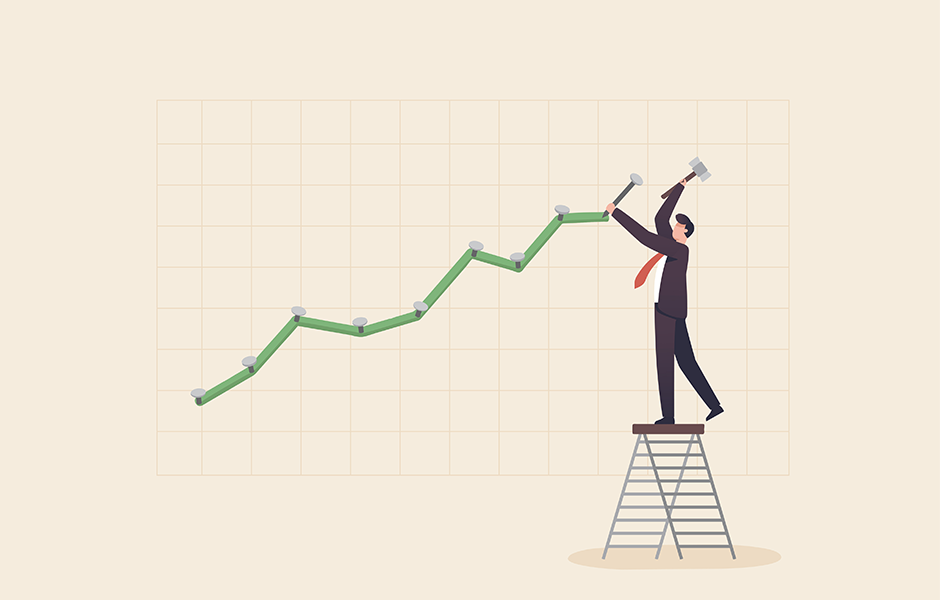Words by Jade Williams
The pharmaceutical industry has continued to showcase growth well into the second quarter of 2024, with many of the leading companies reporting substantial year-over-year (YoY) sales increases in Q2.
AstraZeneca leads the pack with an 18% increase, fuelled by robust sales in oncology and cardiovascular. GSK follows closely with a 13% rise, benefiting from its expanding specialty medicines portfolio.
Novartis, armed with an 11% increase, attributes its growth to the success of its flagship drugs. Bristol Myers Squibb and Sanofi also make it into the top five, with 11% and 10% increases respectively – each driven by new product launches and strategic pipeline advancements.
Editor’s note: All sales growth values are reported at constant exchange rates (CER).
AstraZeneca: $12.9bn, +18%
AstraZeneca’s overall sales growth of 18% is the largest YoY increase in the second quarter, which the company said was driven by an 18% increase in product sales and continued growth in partnered sales.
Specifically, their oncology portfolio contributed to a 22% growth in revenue, with cardiovascular, renal and metabolism, respiratory and immunology both growing 22% additionally. AstraZeneca’s rare disease portfolio also saw a rise in revenue of 15%.
Pascal Soriot, CEO, AstraZeneca, said in a statement that over 2024, the company has “continued to make encouraging progress with several disruptive technologies, including antibody drug conjugates, bispecifics, cell and gene therapies, radioconjugates and weight management medicines”. The company has increased its guidance for 2024 fiscal year in accordance with these results.
GSK: £7.9bn, +13%
Total Q2 sales for UK based GSK reached £7.9bn, seeing an increase of 13% on last year. Its specialty medicines sales are up 22%, with HIV sales not far behind with a 13% rise. GSK’s oncology sales more than doubled over this period, reaching £0.4bn.
Speaking in a press release, Emma Walmsley, CEO, GSK, said that “Q2 sales grew in all areas, with specialty medicines in particular benefitting from new product launches in oncology and HIV”. She went on to note that the company has secured 10 approvals or filings for R&D opportunities and reported positive data from seven phase III trials.
GSK has additionally strengthened its capabilities in key technology platforms and is working on developing new mRNA vaccines, ultra-long-acting HIV medicines and a new medicine for severe asthma. “All this supports our future growth and confidence to bring meaningful innovation to patients,” closed out Walmsley. GSK has an additional 70 vaccines and medicines in its current pipeline.
Novartis: $12.5bn, +11%
Novartis’ sales reached $12.5bn in the second quarter of 2024, up 11% YoY, driven by the performance of its key parts of its drug portfolio.
Drivers included the company’s blockbuster heart drug, which contributed $1.898bn – up 28% – driven by continued robust demand-driven growth and increased penetration in the US and Europe. Also in the top three were the company’s b-cell treatment for MS, with sales up 65%, and its psoriasis drug, which grew 22%, driven mainly by sales in the US.
“Our performance reflects continued strong momentum of our key growth drivers, both in the US and ex-US, which has allowed us to upgrade our FY2024 guidance,” said Vas Narasimhan, CEO, Novartis. “We remain on track to achieve our mid-term sales growth (+5% cc CAGR 2023-2028) and margin (40%+ by 2027) guidance.”
BMS: $12.2bn, +11%
Sales for BMS climbed 11% YoY to $12.2bn, fed by growth from new products such as its blood thinning medicine, anaemia treatment and heart drug.
BMS’ blood thinner, which was the key growth driver in Q2 2024, is expected to take a hit in revenue when the US Inflation Reduction Act (IRA) kicks in from 2026. However, speaking in the company’s conference call, Christopher Boerner, Board Chair and CEO, Bristol Myers Squibb, said that “based on having seen the price, we’re very confident in our ability to navigate the impact of the IRA” on this drug in particular.
Speaking in a press release, he went on to say that as BMS moves into the second half of the year, it remains “focused on prioritising opportunities with the greatest growth potential and impact for patients”. This includes the anticipated US launch of their investigational muscarinic antipsychotic for the treatment of schizophrenia and psychosis related to Alzheimer’s disease.
“We’re also driving operational excellence throughout the company, becoming more agile and strengthening execution”, Boerner said. The company additionally raised its earnings forecast for 2024.
Sanofi: €10.7bn, +10%
Sanofi’s second-quarter sales rose 10% YoY to €10.7bn. Growth was driven by sales of its monoclonal antibody for asthma and atopic dermatitis and other new product launches. Expenses on R&D rose 5.5% in the quarter, while vaccine sales fell 4.8% – which the company attributed to high sales of COVID-19 in 2023.
The company made significant pipeline progress with three regulatory approvals, including achieving a new indication for their monoclonal antibody in COPD in the EU. Sanofi upgraded its 2024 business EPS guidance to be stable at the coupon equivalent rate, citing accelerated pipeline development and transformation efforts.
Commenting on the positive quarter, Paul Hudson, Chief Executive Officer, Sanofi, said: “We made important progress in our pipeline of new medicines,” including the approval of their existing drug for COPD. He said the drug in question was “the first-ever biologic medicine approved in this debilitating disease impacting hundreds of thousands of patients globally”.









